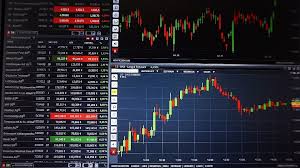
AI in Forex Trading: Revolutionizing Currency Markets
Artificial Intelligence (AI) has made significant strides in recent years, impacting various sectors, including finance. Forex trading, the process of buying and selling currencies on the foreign exchange market, has begun to embrace AI technology. This article explores how AI is transforming the Forex trading landscape, providing insights into its advantages, applications, and future potential. For traders interested in Sharia-compliant trading options, you can find more information in ai forex trading Top Sharia Forex Platforms.
The Basics of Forex Trading
The Forex market is the largest and most liquid financial market worldwide, with a daily trading volume exceeding $6 trillion. Unlike stock markets, the Forex market operates 24 hours a day, five days a week, enabling traders to buy and sell currencies at any time. Successful trading relies on analysis of various factors, including economic indicators, political stability, and market sentiment.
Why AI in Forex Trading?
The introduction of AI in Forex trading offers numerous advantages over traditional trading methods. Firstly, AI systems can process vast amounts of data quickly, identifying patterns and trends that human traders may overlook. Additionally, AI-driven algorithms can analyze market conditions in real-time, enabling faster decision-making. Here are some key benefits of utilizing AI in Forex trading:
- Speed and Efficiency: AI algorithms can execute trades in microseconds, capitalizing on fleeting market opportunities.
- Data Analysis: AI can analyze historical data, news feeds, and economic reports to forecast currency movements.
- Emotionless Trading: AI removes emotional influences from trading decisions, leading to more rational and disciplined strategies.
- Backtesting: AI algorithms can be backtested using historical data to refine their strategies before deployment.
Applications of AI in Forex Trading

AI technologies are being used in various capacities in Forex trading. Some of the most prominent applications include:
1. Automated Trading Systems
Automated trading systems, commonly known as trading bots, leverage AI algorithms to execute trades based on predefined criteria. These bots can continuously monitor the market, analyze incoming data, and place trades on behalf of the trader, significantly reducing the need for manual intervention.
2. Predictive Analytics
AI utilizes predictive analytics to forecast future currency movements based on historical data and various market indicators. By employing machine learning techniques, AI models continuously learn and adapt to changing market conditions, improving their accuracy over time.
3. Sentiment Analysis
AI-driven sentiment analysis tools assess social media, news articles, and other online content to gauge market sentiment. Understanding trader sentiment can provide valuable insights for making informed trading decisions, as public sentiment often impacts currency prices.
4. Risk Management
AI systems can enhance risk management strategies by analyzing vast datasets to identify potential risks associated with specific trades. By evaluating factors such as historical volatility and market sentiment, AI can assist traders in adjusting their positions accordingly to minimize losses.
Challenges of AI in Forex Trading
While AI has the potential to revolutionize Forex trading, there are challenges that need to be addressed:
1. Data Quality
The effectiveness of AI algorithms is highly dependent on the quality of data fed into them. Poor-quality data can lead to inaccurate predictions and unprofitable trading decisions.
2. Market Volatility
The Forex market is known for its volatility, with prices fluctuating rapidly. AI systems must be developed to adapt to these sudden changes to remain effective.
3. Regulatory Issues
As AI technologies advance, regulatory bodies may impose new rules and standards for trading practices. Keeping up with regulatory changes is essential for traders utilizing AI solutions.
The Future of AI in Forex Trading
The future of AI in Forex trading looks promising, with continued advancements in machine learning, data analytics, and automation. As these technologies evolve, traders can expect enhanced tools for analyzing market data, improved predictive models, and more sophisticated trading algorithms.
Furthermore, the integration of AI will likely democratize Forex trading, enabling retail traders to access powerful trading tools that were previously reserved for institutional investors. As more traders adopt AI solutions, the dynamics of the Forex market may shift, impacting trading strategies and market behavior.
Conclusion
AI is set to transform Forex trading, offering traders unparalleled advantages in speed, efficiency, and data analysis. As technology continues to evolve, the potential for AI in this sector will only grow. By staying informed and adapting to these changes, traders can harness the power of AI to enhance their trading strategies and achieve greater success in the Forex market. The future is bright for those willing to embrace AI as a valuable tool in their trading arsenal.
